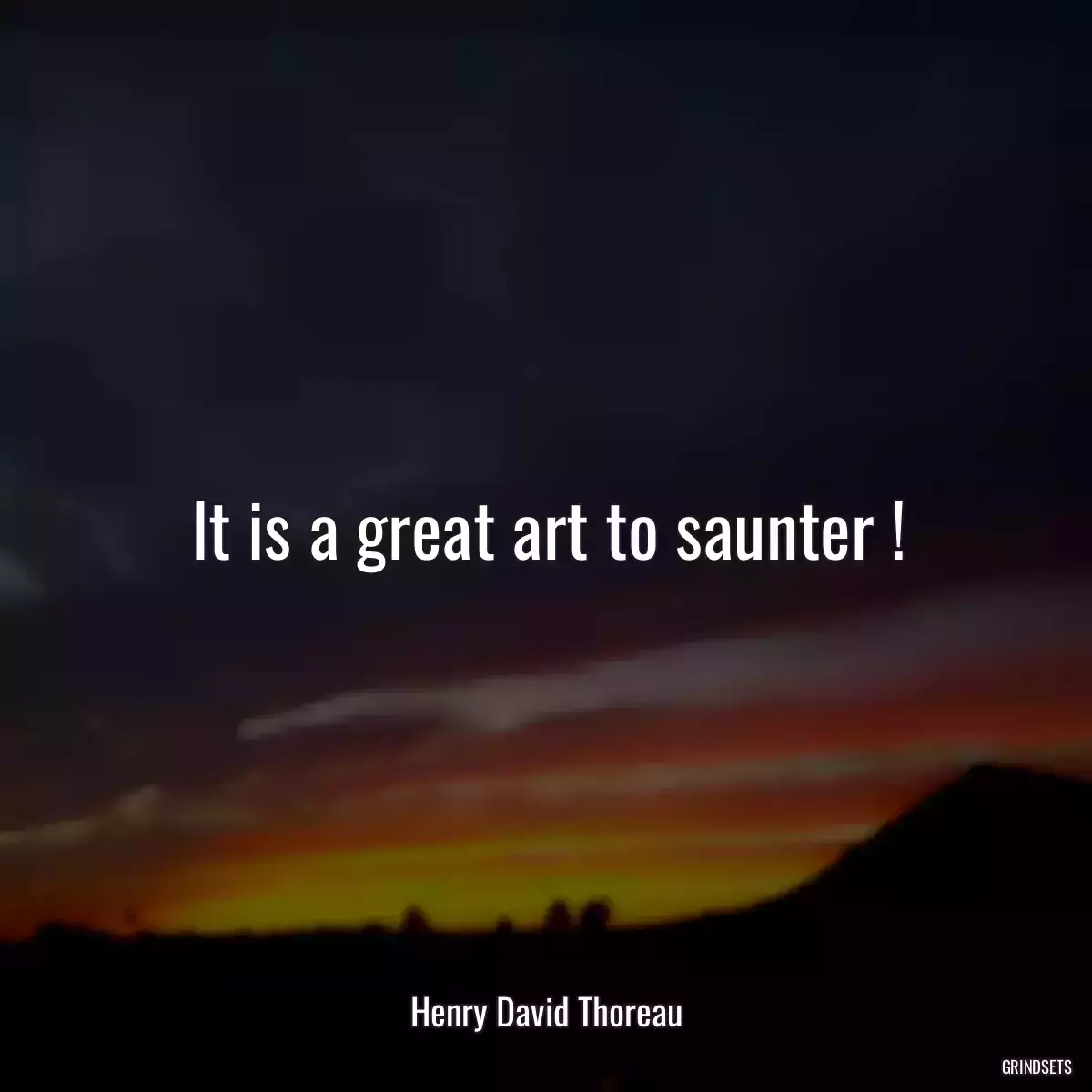
Quotes Henry David Thoreau - page 17
Find dozens of Henry David Thoreau with images to copy and share.

Every walk is a sort of crusade, preached by some Peter the Hermit in us.
Any fool can make a rule, and any fool will mind it.
If the machine of government is of such a nature that it requires you to be the agent of injustice to another, then, I say, break the law.
You may also like
I, who cannot stay in my chamber for a single day without acquiring some rust,... confess that I am astonished at the power of endurance, to say nothing of the moral insensibility, of my neighbors who confine themselves to shops and offices the whole day for weeks and months, aye, and years almost together. I know not what manner of stuff they are of,--sitting there now at three o'clock in the afternoon, as if it were three o'clock in the morning.
Of course it is of no use to direct our steps to the woods, if they do not carry us thither. I am alarmed when it happens that I have walked a mile into the woods bodily, without getting there in spirit.... What business have I in the woods, if I am thinking of something out of the woods?
Do we call this the land of the free? What is it to be free from King George the Fourth and continue the slaves of prejudice? What is it to be born free and equal, and not to live? What is the value of any political freedom, but as a means to moral freedom?
I make my own time. I make my own terms. I cannot see how God or Nature can ever get the start of me.
The savage in man is never quite eradicated.

Mine was, as it were, the connecting link between wild and cultivated fields; as some states are civilized, and others half-civilized, and others savage or barbarous, so my field was, though not in a bad sense, a half-cultivated field. They were beans cheerfully returning to their wild and primitive state that I cultivated, and my hoe played the Ranz des Vaches for them.
Compared with this simple, fibrous life, our civilized history appears the chronicle of debility, of fashion, and the arts of luxury. But the civilized man misses no real refinement in the poetry of the rudest era. It reminds him that civilization does but dress men. It makes shoes, but it does not toughen the soles of the feet. It makes cloth of finer texture, but it does not touch the skin. Inside the civilized man stands the savage still in the place of honor. We are those blue-eyed, yellow-haired Saxons, those slender, dark-haired Normans.
A familiar name cannot make a man less strange to me. It may be given to a savage who retains in secret his own wild title earnedin the woods. We have a wild savage in us, and a savage name is perchance somewhere recorded as ours.
It is now many years that men have resorted to the forest for fuel and the materials of the arts: the New Englander and the New Hollander, the Parisian and the Celt, the farmer and Robin Hood, Goody Blake and Harry Gill; in most parts of the world, the prince and the peasant, the scholar and the savage, equally require still a few sticks from the forest to warm them and cook their food. Neither could I do without them.
How far men go for the material of their houses! The inhabitants of the most civilized cities, in all ages, send into far, primitive forests, beyond the bounds of their civilization, where the moose and bear and savage dwell, for their pine boards for ordinary use. And, on the other hand, the savage soon receives from cities iron arrow-points, hatchets, and guns, to point his savageness with.
And if the civilized man's pursuits are no worthier than the savage's, if he is employed the greater part of his life in obtaininggross necessaries and comforts merely, why should he have a better dwelling than the former?
The customs of some savage nations might, perchance, be profitably imitated by us, for they at least go through the semblance of casting their slough annually; they have the idea of the thing, whether they have the reality or not.
The English did not come to America from a mere love of adventure, nor to truck with or convert the savages, nor to hold offices under the crown, as the French to a great extent did, but to live in earnest and with freedom.
You may also like

The civilized man is a more experienced and wiser savage.